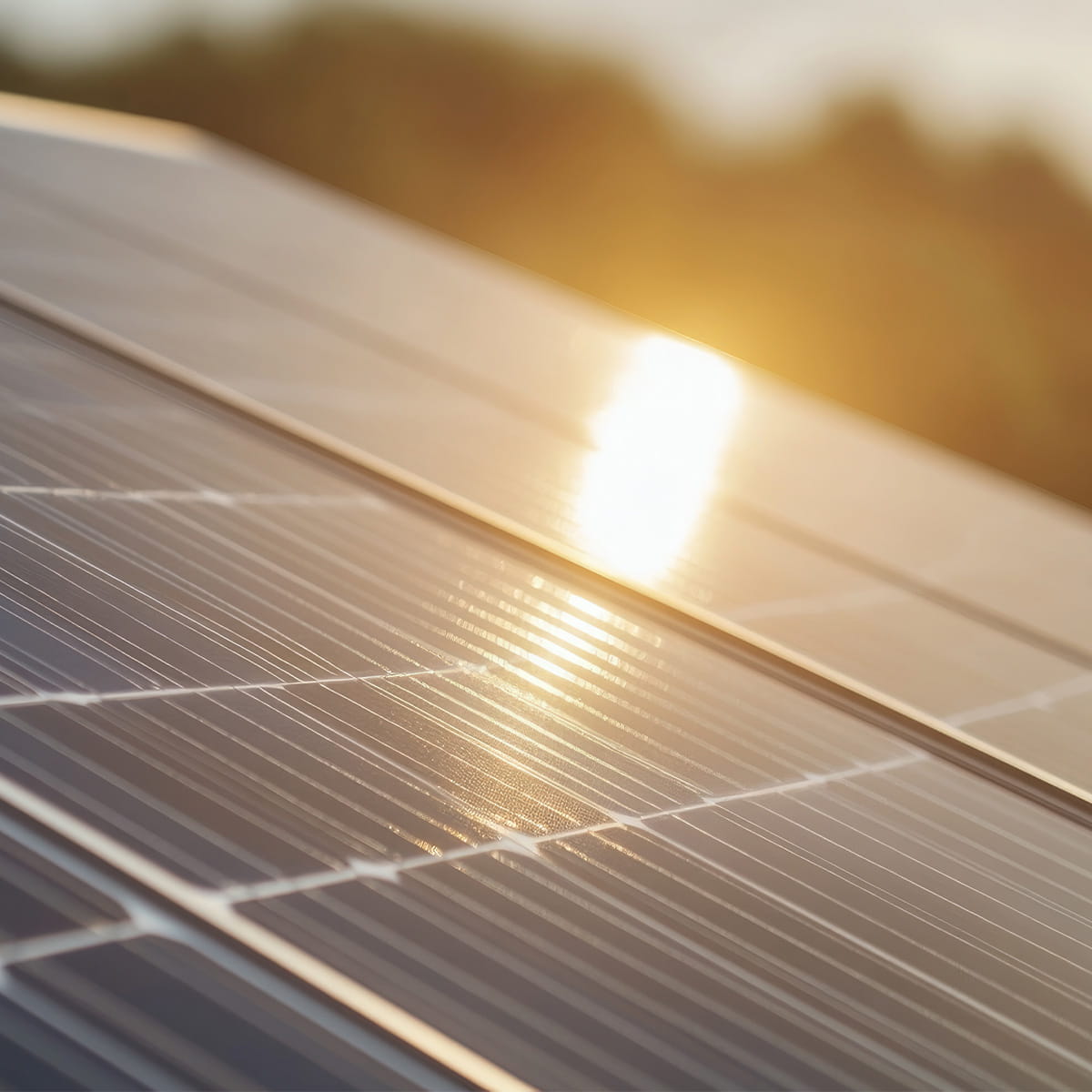Sunny Side Up: What Holiday Parks Need to Know About Photovoltaic (PV) Solar System Insurance
Many holiday parks are turning to photovoltaic (PV) solar panel systems to cut energy costs and reduce their carbon footprint. While beneficial, they come with risks. Proper insurance can protect your investment and keep your park running smoothly.

Property Damage Cover
PV solar systems are a significant investment, and damage from weather, vandalism, or accidental impact can be costly. When installing panels, it is worth speaking to your insurer to ensure your existing policy covers:
- Storm damage (including hail and high winds)
- Fire and electrical faults
- Vandalism and theft
- Accidental damage, such as falling debris or vehicle collisions
Business Interruption Insurance
If your holiday park relies on solar energy, damage to the system could disrupt your park’s operations, this in turn could lead to financial loss. Business interruption insurance cover will help cover lost income while repairs are made, ensuring minimal disruption to guests and your revenue.
Liability Risks
Having the right public liability insurance in place can protect your park from claims related to injuries or damage caused by solar panels. Such claims can include injury from falling panels or exposed wiring and faulty installations, which could lead to electrical fires or structural damage. It is also crucial to ensure your contractor has appropriate liability coverage and is an approved installer, such as MCS (Microgeneration Certification Scheme) certified.
Theft & Security Measures
Often solar panels can be seen as an easy target for thieves. Always ensure this is included within your insurance policy and help reduce the risk by installing additional CCTV and security lighting.
Compliance & Warranty Considerations
Always make sure that solar PV panels are:
- Compliant with local building regulations and safety standards
- Regularly maintained to prevent faults or hazards by an MCS certified contractor
- Manufacturer warranties are in place for faulty equipment
Keeping on top of these areas will help in the unfortunate event of having to make a claim
Environmental & Pollution Liability
PV solar systems contain materials that could be hazardous if damaged, such as lithium-ion batteries in solar storage systems. It is always worth considering Pollution liability insurance which can protect against claims related to environmental contamination or hazardous waste disposal.:
Fire Risk
The Fire Protection Association (FPA) has identified several factors that contribute to fire losses, including:- Moisture and water ingress into PV system components—such as DC and AC isolators and combiner boxes—causing short circuits and subsequent failure.
- Accumulation of dirt and bird droppings on PV panels, resulting in partial shading and the formation of hot spots that may develop into faults.
- Use of low-quality or incompatible components during the initial installation or when replacing parts, leading to system failures.
Top tips from PIB
Consult your local fire & rescue service prior to installation to identify potential firefighting concerns your proposed system may pose to them.
Choose an approved installer; insurers will typically require installation and annual maintenance/ inspection by an MCS certified company.
MCS certification provides confidence to insurers that the installation has been designed, installed & commissioned to the highest standard using only MCS certified products by an MCS certified installer.
Install solar panels on non-combustible roofs/ surfaces, i.e. materials achieving Euro Class A1 or A2 under BS EN 13501-1.
Where materials do not achieve Euro Class A, fire rated protective linings/ boards approved by insurers should be installed between the panel and the roof covering.
Ensure inverters are in a well-ventilated room secured to a non-combustible wall (preferably masonry) which is in an area free from combustibles (minimum 2 metre clearance).
Install readily accessible fire switches to isolate BOTH the AC (alternating current) and DC (direct current) sides of the system to assist firefighting activity.
The FPA report that: Even in the absence of direct sunlight, PV panels produce a DC voltage from daylight and other light sources, including any floodlights used to illuminate a fire incident, even if the AC side of the circuit is isolated from the mains electrical supply.
For further information and advice get in touch with your PIB representative.
Reference Sources:
- RC62: Recommendations for fire safety with PV panel installations
- Need to Know Guide RE3 – Rooftop-mounted PV Solar Systems
